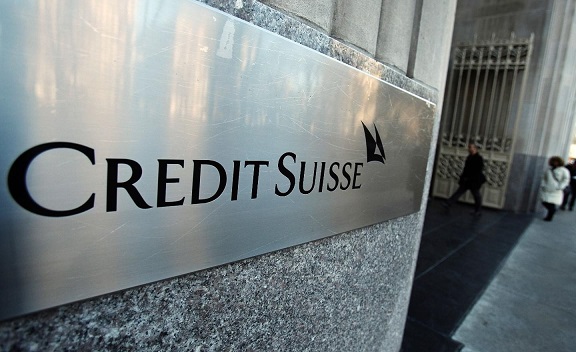More than 5,000 Mozambicans deported by South Africa in H1- SENAMI
Credit Suisse arrests follow Chang’s detention – AIM report

In file CoM
The whole corrupt house of cards built around the scandal of Mozambique’s “hidden loans” is now collapsing, with arrests of key figures in South Africa, London and New York.
It is now clear that the investigation by the US Justice Department into the illicit loans is not restricted to the Mozambicans involved. According to a report from the Reuters news agency, on Thursday three former bankers for the Credit Suisse Group were arrested in London, while a Lebanese citizen, Jean Boustani, who worked for the Abu Dhabi-based company Privinvest, was arrested at New York’s JF Kennedy Airport, as he was attempting to leave the country.
These arrests followed the detention on Saturday at Johannesburg’s OR Tambo International Airport of former Mozambican Finance Minister Manuel Chang. The South Africans acted on an international arrest warrant issued by the United States authorities who want to extradite Chang.
The US indictment charges the three bankers and Boustani with four counts of conspiracy to commit money laundering, conspiracy to violate the US Foreign Corrupt Practices Act (FPCA), conspiracy to commit securities fraud and conspiracy to commit wire fraud. The same charges are levelled against Chang, with the exception of the FCPA conspiracy count.
The scandal arises from the creation of three Mozambican companies, Ematum (Mozambique Tuna Company), Proindicus and MAM (Mozambique Asset Management) which, in 2013 and 2014, set about obtaining over two billion US dollars worth of loans from Credit Suisse and from VTB of Russia.
The loans should never have been granted, since the three companies had no track record of any kind, and the main player in setting them up was the Mozambican intelligence service, SISE. A senior SISE official, Antonio do Rosario, was appointed the chairperson of all three companies.
Despite the absence of any due diligence, Credit Suisse and VTB granted the loans – largely because the Mozambican government of the time, headed by President Armando Guebuza, guaranteed 100 per cent of the loans – meaning that, if the companies defaulted, the government became liable for repaying the loans. Chang himself, as finance minister, signed many of the guarantees.
The money from Credit Suisse and VTB was paid, not to Mozambique, but directly to Privinvest, which was the contractor hired to provide the assets which the money was supposedly intended to purchase.
Boats for Ematum and Proindicus were built at a shipyard in Normandy owned by Privinvest. The independent audit of Ematum, Proindicus and MAM, undertaken by Kroll Associates, the foremost fornsic auditing company in the world, showed that the boats were grossly over-invoiced.
Despite the initial promises of a fleet of tuna fishing vessels, and an elaborate coastal security system, the three companies soon proved useless, and by 2016 they were effectively bankrupt. The Mozambican government did not have the money to repay the loans, and so it has repeatedly defaulted, while calling on the creditors to renegotiate payment terms.
The three former Credit Suisse bankers are Andrew Pearse, Surjan Singh and Detelina Subeva. All three have been released on bail in London while the US authorities seek their extradition.
The name of Andrew Pearse is familiar to anyone who has followed this scandal from the start. After helping arrange the loans, he left Credit Suisse and smoothly joined Palomar, a subsidiary of Privinvest. Subeva also left Credit Suisse (in 2013) to work for Privinvest.
The Kroll audit report does not name the individuals concerned – but it is easy to deduce who they are. “Individual B” in the report in Pearse, “individual C” is Chang, and “individual A” is Antono do Rosario.
According to John Marzulli, a spokesperson for the federal prosecutors in New York, the indictment claims that Ematum, Proindicus and MAM were not genuine companies, but merely ‘fronts’ for Chang, Boustani and the three bankers to enrich themselves. The prosecutors say that at least 200 million dollars was diverted to the defendants and other Mozambican government officials. They said the defendants concealed the misuse of the funds and misled investors abroad, including in the United States, about Mozambique’s creditworthiness.
Credit Suisse moved quickly to distance itself from Pearse, Singh and Subeva. It issued a statement which said “The indictment alleges that the former employees worked to defeat the bank’s internal controls, acted out of a motive of personal profit, and sought to hide these activities from the bank.” It added that the bank will continue to cooperate with authorities.
Credit Suisse itself has not yet been charged with any criminal activity, although, according to the London “Financial Times”, US attorneys believe the three former employees acted “within the scope of their employment” and that they intended, in part at least, to benefit the bank.
But the indictment also accuses the bankers of using personal emails to conceal their activities and misleading the bank over the nature of the companies behind the loans.
But why should the US concern itself with loans by a Swiss bank to Mozambican companies using an Abu Dhabi contractor? The answer to this question seems to be that the deception extended to US investors.
The debts were sold on: indeed, the Ematum loan took the form of a bond issue on the European market, and those bonds have been publicly traded. As a result US concerns find that they have purchased investments which are not providing the promised returns – they were, in short, defrauded, and this presumably explains the reference to securities fraud in the indictment.
Meanwhile, in Maputo the government has remained silent on the arrests of Chang and his alleged co-conspirators. Nor has there been any statement from the ruling Frelimo Party, of which Chang was a prominent member (he sat in the Mozambican parliament, the Assembly of the Republic, as a Frelimo deputy).
A deathly hush also emanates from the Attorney-General’s Office, which opened an investigation into the loans and their illicit guarantees in 2015, but has so far taken no measures against any of those involved.












Leave a Reply
Be the First to Comment!
You must be logged in to post a comment.
You must be logged in to post a comment.